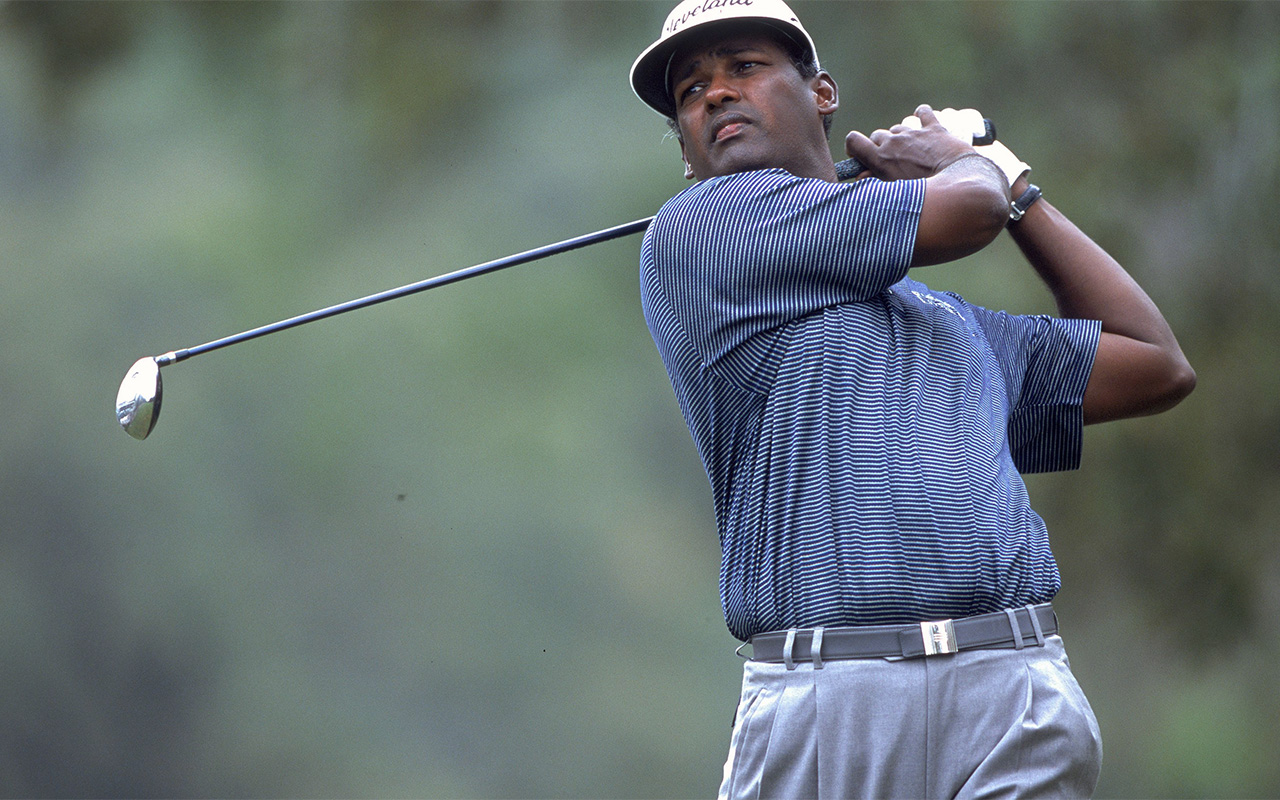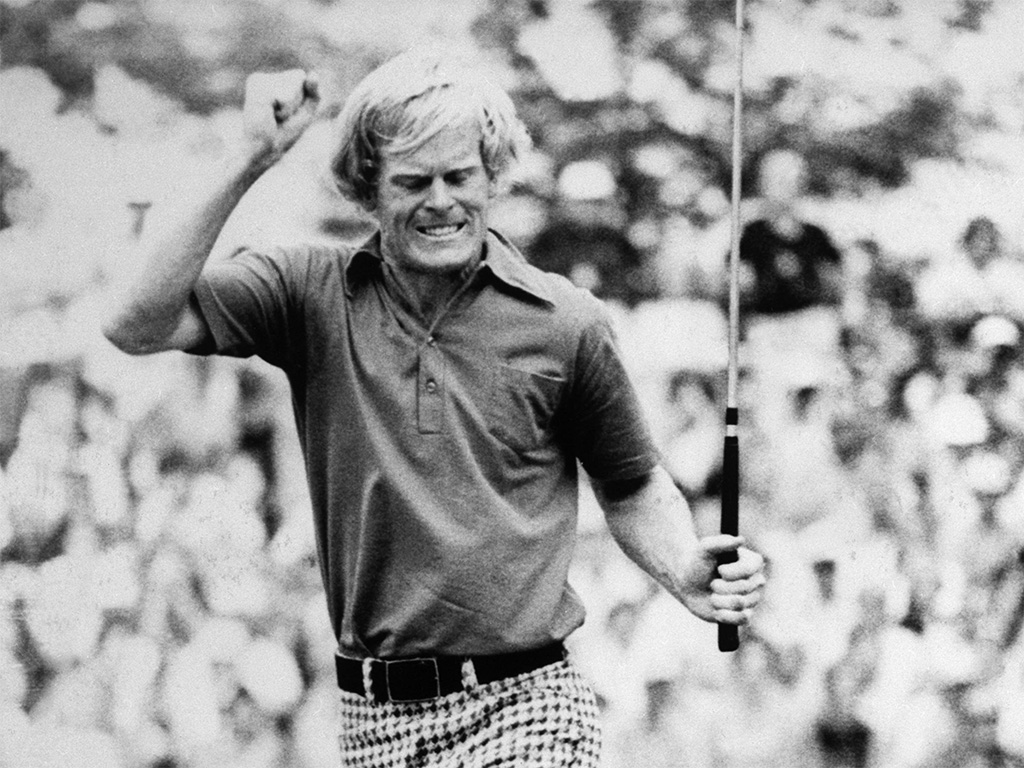The DJ Conundrum
How will Dustin Johnson's career stack up?


Perhaps because of his laid-back approach to interviews—and to golf in general—Dustin Johnson doesn’t get the attention he deserves. Contemporaries Rory McIlroy, Jordan Spieth, Justin Thomas, and Rickie Fowler get more of the spotlight, even though DJ is arguably the most consistent of them all.
Johnson’s recent win at the 2020 Travelers Championship gives him 21 PGA Tour victories. Add in his 2016 U.S. Open title, and you’re looking at a Hall-of-Fame career. Given that he has played in an era when money, better equipment, and better instruction have made golf’s pool of potential winners tremendously deep, DJ’s long résumé is all the more impressive.
Of course, it could have been even longer. From the Sunday 82 in the 2010 U.S. Open to the grounded-club fiasco at the 2010 PGA Championship, he has had numerous close calls at majors.
So assessing Dustin Johnson’s place in history is a bit tricky. We know he is one of this generation’s alphas, but is he an all-timer? Of course, he seems to have plenty of time left—he’s 36 and still a specimen—but just as an exercise, let’s consider his body of work and make a few historical comparisons.
Johnson’s achievements (so far)
- Major wins: one
- PGA Tour wins: 21
- Notable wins: 2016 U.S. Open, five World Golf Championships, 2017 Genesis Open, 2018 Sentry Tournament of Champions
- Peak five-year stretch (2015-2019): 102 starts, 13 PGA Tour wins, 10 runner-ups, six third-place finishes, 53 top 10s
- Peak five-year stretch in majors (2015-2019): 19 starts, one win, three runner-ups, six top fives, 10 top 10s
According to Data Golf, Dustin Johnson’s absolute peak occurred between 2016 and 2018. During that stretch, he gained 2.53 shots per round on the field, good enough for the eighth best hot streak in golf since 2004. That is nearly identical to Rory McIlroy’s best stint (2.54 SG/round) and is better than those of Phil Mickelson, Justin Rose, and Adam Scott.
Player Comparisons

Fred Couples: style
The apparent apathy, the swagger, the cool demeanor, the astonishing natural ability, the… uh, low number of major championship wins—all of these factors make DJ and Freddie a natural pair. Plus, in some ways, their careers have run parallel.
Five-year peaks:
- Couples (1990-1994): 98 starts, 11 PGA Tour wins, seven runner-ups, 43 top 10s, 18% top two, 44% top 10
- Johnson (2015-2019): 102 starts, 13 PGA Tour wins, 10 runner-ups, 53 top 10s, 23% top two, 52% top 10
But Johnson has already eclipsed Couples in total career accomplishments, with a decisive 21-15 lead in PGA Tour wins.
One point in defense of Freddie: a back injury in 1994 effectively ended his prime, whereas DJ has remained healthy so far (well, aside from his “slip” down the stairs at Augusta and his “voluntary” “leave of absence” in 2015).

Davis Love III: the floor
Clearly Dustin Johnson has a few years left in his prime, but right now his résumé lines up almost exactly with DL3’s. While Johnson’s peak was significantly better than Love’s, their basic win totals are the same:
- Johnson: 21 PGA Tour wins, one major championship win
- Love: 21 PGA Tour wins, one major championship win
And their five-year major championship peaks are very similar:
- Johnson (2015-2019): 19 starts, one win, three runner-ups, six top fives, 10 top 10s
- Love (1995-1999): 20 starts, one win, three runner-ups, five top fives, 11 top 10s
DJ is likely to leave DL3 behind over the next several years. But on one count, Johnson will have a harder time surpassing Love. DL3 won his last PGA Tour event a remarkable 28 years after his first. If DJ were to do the same, he would need a win in 2036.

Vijay Singh: the ceiling
Let’s say Johnson really gets it rolling again. He holds off the influx of young talent and keeps racking up trophies into his 40s. If that happens, DJ could reach Vijay Singh territory, at least in terms of PGA Tour numbers:
- Johnson: 21 PGA Tour wins, one European Tour win, one major championship win
- Singh: 34 PGA Tour wins, nine European Tour wins, three major championship wins
Okay, so everything would have to go right for DJ for him to pull even. But remember that Vijay did much of his damage in his 40s. He was 41 when he dominated a season in the middle of the Tiger era. So that’s a ray of hope for Johnson. Ultimately, though, it’s unlikely that he will be able to match what Singh did in the mid-2000s. Yes, if DJ can win once or twice a year for the next five seasons and grab another major or two, his PGA Tour numbers will stack up reasonably well against the Big Fijian’s. But he has a long way to go.

Johnny Miller: in all likelihood
The more realistic scenario is that Dustin Johnson will win once a season or once every other season for the next five to seven years. He’s also fully capable of winning another major. So assuming he stays healthy, Johnson’s career totals will probably look a lot like Johnny Miller’s. Here’s how the comp stands now:
- Johnson: 21 PGA Tour victories, 43 top threes, 99 top 10s, one major championship win
- Miller: 25 PGA Tour victories, 51 top threes, 105 top 10s, two major championship wins
DJ will almost certainly surpass Johnny in top-three and top-10 finishes, and he’d no doubt be pleased with four more wins and one more major. But the Johnson-Miller comparison goes beyond stats. Both possess a dominant skill: Miller, historically pure ball-striking; DJ, generational driving. Both even have dramatic U.S. Open victories at Oakmont!
Still, four wins and a major is a high bar for Johnson. His driver may not be as much of an anomaly as it once was. He actually lost strokes to the field off the tee during his winning campaign at the Travelers.
So we know Dustin Johnson will go down as one of the dominant golfers of the 2010s. But the first half of the 2020s will determine whether we remember him as an all-time great.
Leave a comment or start a discussion
Engage in our content with thousands of other Fried Egg Golf Members
Engage in our content with thousands of other Fried Egg Golf Members
Get full access to exclusive benefits from Fried Egg Golf
- Member-only content
- Community discussions forums
- Member-only experiences and early access to events











Leave a comment or start a discussion
Lorem ipsum dolor sit amet, consectetur adipiscing elit. Suspendisse varius enim in eros elementum tristique. Duis cursus, mi quis viverra ornare, eros dolor interdum nulla, ut commodo diam libero vitae erat. Aenean faucibus nibh et justo cursus id rutrum lorem imperdiet. Nunc ut sem vitae risus tristique posuere. uis cursus, mi quis viverra ornare, eros dolor interdum nulla, ut commodo diam libero vitae erat. Aenean faucibus nibh et justo cursus id rutrum lorem imperdiet. Nunc ut sem vitae risus tristique posuere.